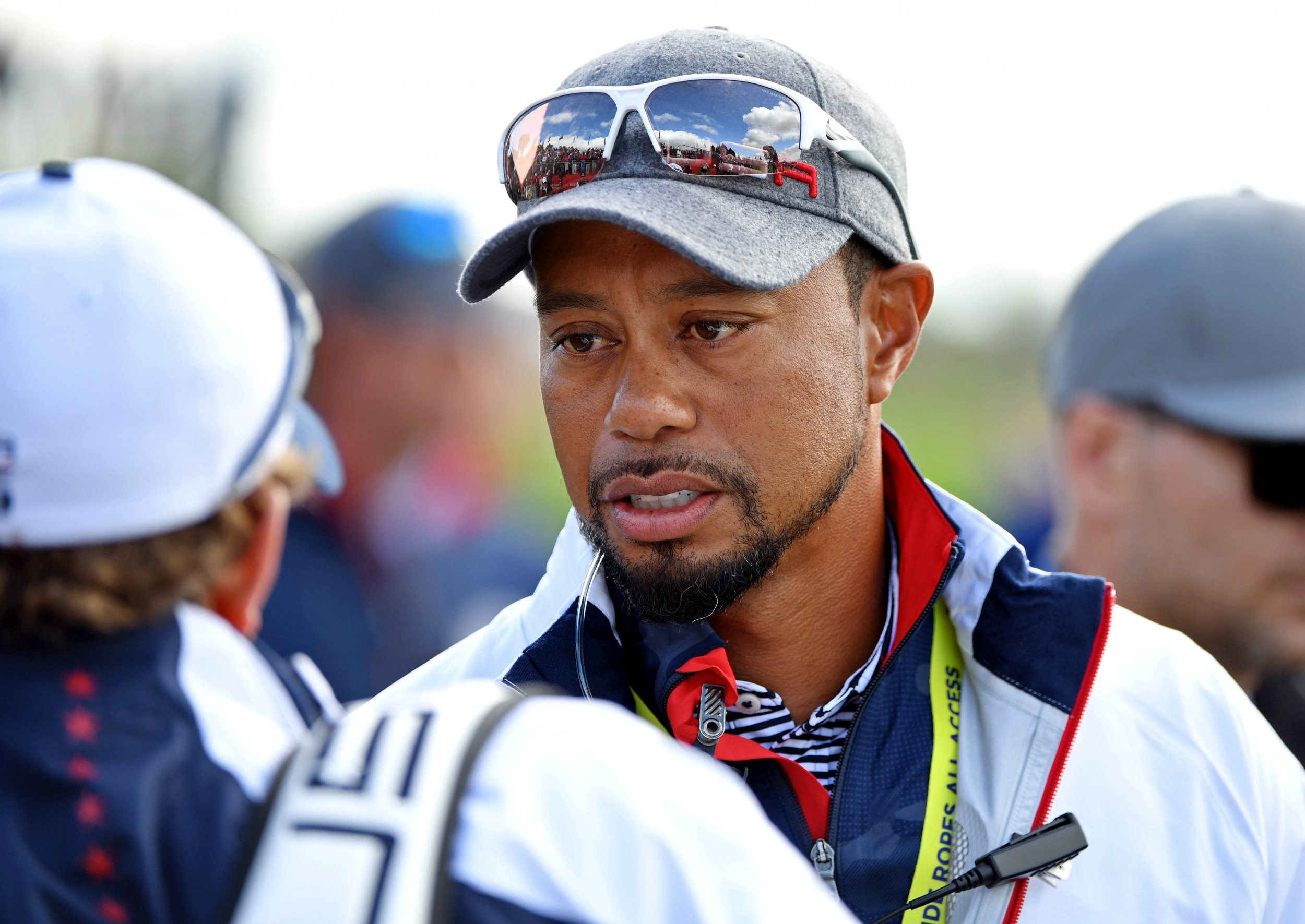
Tiger Woods has long been accustomed to owning the sports headlines on the day after the Arnold Palmer Invitational concludes. That PGA Tour event—which Woods has won eight times—wrapped on Sunday without its legendary namesake (who died in September) or the injured Woods, who in recent years has spent more time on the sidelines than Bill Belichick.
Despite his absence, Woods still earned more Monday headlines than the API winner (Marc Leishman, in case you were wondering). Woods appeared on Good Morning America, where he claimed his first golf victory in almost four years, albeit in an impromptu putting contest with GMA host Michael Strahan. He was there to promote his new book, The 1997 Masters: My Story, written with journalist Lorne Rubenstein.
Related: Tiger Woods is back—but still on the endangered list
Two decades ago, a 21-year-old Woods romped to a 12-stroke victory in his professional debut at The Masters. It was the first of many seminal performances in major championships that defined the Woods legend over the ensuing decade. His four Masters titles make him synonymous with Augusta National Golf Club, but in the same way that Pete Sampras is synonymous with Wimbledon. Stirring victories, for sure, but of another era. Woods hasn't won at Augusta in 12 years, hasn't contended there in four years, and hasn't even teed off in two of the last three tournaments there.
His participation in this year's Masters—which begins in just 14 days—seems decidedly uncertain.
Woods hasn't played any competitive golf since withdrawing with back spasms after one round in Dubai on February 3, abruptly aborting his comeback after a 15-month layoff for back surgery. Since then, information about his health and prognosis has been so tightly guarded as to be the envy of the sieve-like White House.
Last week, respected Golf Digest writer Brian Wacker, citing multiple anonymous sources, reported that Woods was "unlikely" to play in the Masters due to his inability to practice and ongoing physical struggles. This drew a predictably measured response from the Sean Spicer of Team Tiger, agent Mark Steinberg, who fumed to Golf Channel, "I have no idea who Mr. Wacker's really close sources are. I can tell you this: Nobody spoke to him, so how he could know something that Tiger and I don't know is comical."
Even Steinberg's well-rehearsed ire seemed a relic of another time, when the entire golf world hung on Tiger's schedule. As his injuries become more frequent, his absences more prolonged, his secrecy more intense, the interest among fans and media waned. Woods still commands attention when he plays, but yet another Hamlet routine of "will he, won't he?" is scarcely worth the ink. Sports fans have a way of trucking on with a new generation of stars—even those of a lower wattage—sparing barely a glance at the road kill left behind.
On GMA, Strahan asked Woods about his prospects of playing at the Masters. " I hope so. I'm trying," he replied. "I'm trying every day to get back and play. I love that event. It's meant so much to me in my life."
For all his earnest desire to play, Woods may be more likely to sign books about a long-ago Masters than he is to sign a scorecard at this year's event. His physical health is severely compromised. His game is in ruins. His confidence is shot. His competition on the course is fierce, and unafraid. Any win now, much less a major championship, would rank as the most significant of his career. But given his ongoing struggles, a Roger Federer–like run for Woods in his 40s seems desperately unlikely, and there is a growing sense among observers that his career is all but past.
For many years it was casually assumed that Woods would blow by Jack Nicklaus's record of 18 major titles. He has been stalled on 14 for almost nine years, since the 2008 U.S. Open. It seems fanciful to imagine he can even beat Sam Snead's record of most PGA Tour wins. Snead had 82. Woods has been sitting on 79 for more than three injury-plagued years.
Woods will almost certainly be at Augusta National in two weeks, if only for the traditional champions dinner before the tournament. It's conceivable he will play, but he won't contend. Even he knows that. Making the 36-hole cut would be a victory, of sorts. (The Masters is the easiest cut to make in major golf—discount the aging former champions and optimistic amateurs in an already limited field and a player need beat only a few dozen guys to make the weekend.)
But, at least for now, Tiger's is a world of such hollow victories. His book is new, but that '97 Masters has never seemed so far away. And that's the undercurrent in the salutes to Woods's stunning accomplishment two decades ago: a celebration of sporting greatness, but one tempered with a wistful regret for all that has been lost since.
Uncommon Knowledge
Newsweek is committed to challenging conventional wisdom and finding connections in the search for common ground.
Newsweek is committed to challenging conventional wisdom and finding connections in the search for common ground.
About the writer
To read how Newsweek uses AI as a newsroom tool, Click here.








